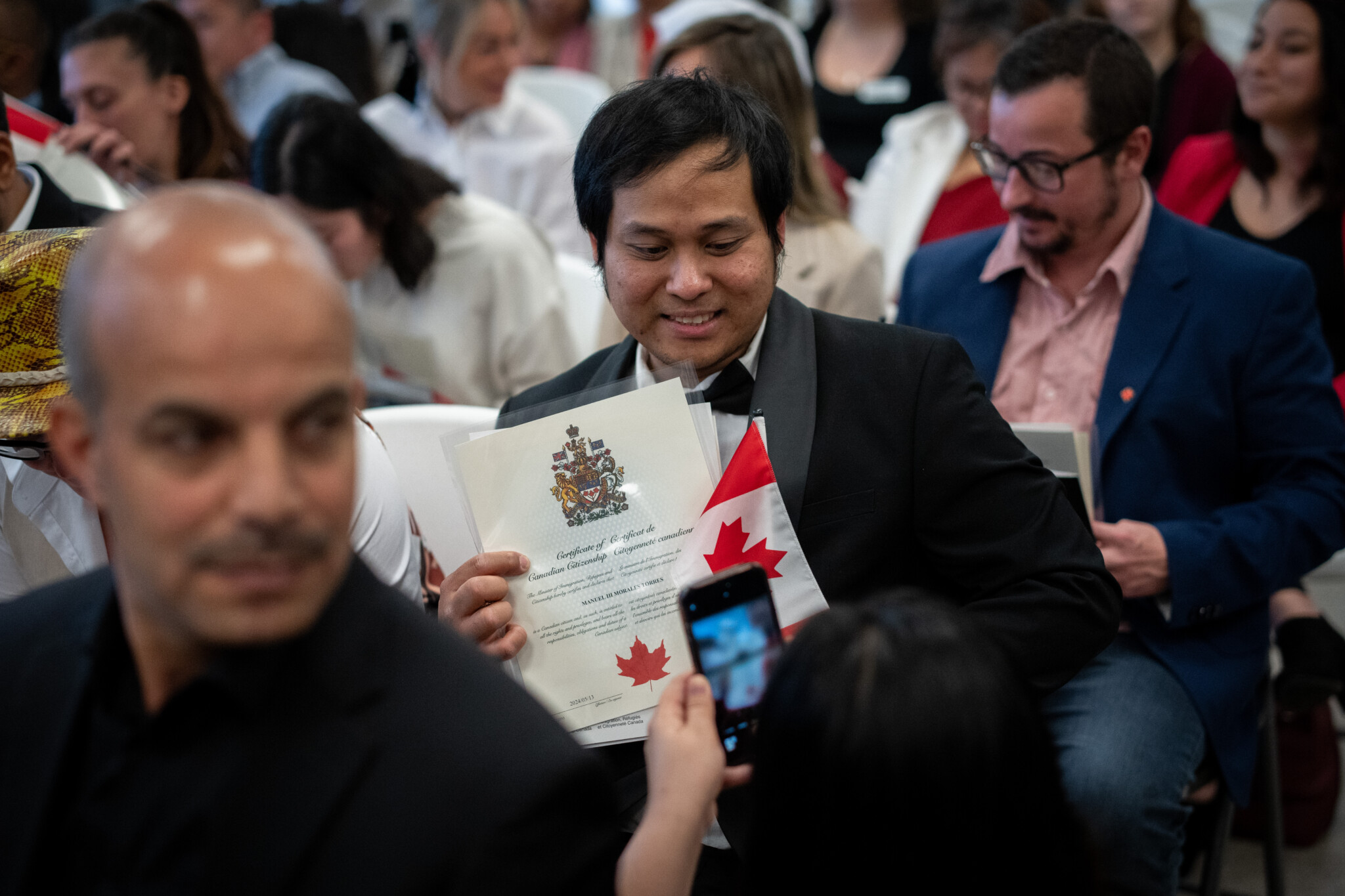The recent revelations concerning foreign interference among Canada’s elected officials have hit like a bomb—at least among those media organs that could be bothered to report on it. It obviously raises critical concerns about national security, as well as questions about the legitimacy of any political party whose members are found to have been compromised.
But perhaps less obviously, it also raises fundamental questions about the value of Canadian citizenship. For, among much else, this foreign interference is an affront to the prerogatives of the citizenry—chiefly their rights and privileges to elect a government that answers to them and not to others.
More broadly still, however, public comments by the present leadership over the years have reflected a denigration of the meaning of citizenship. Between this and the emergence of diaspora politics as a significant phenomenon, one can see how foreign meddling—and potentially treason—might become normalized.
In light of these developments, it is worth reflecting on what Canadian citizenship means and what it might be worth—for not all the answers are intuitive. Fear not, this isn’t going to be a sentimental paean to maple syrup and portaging and flannel clothing. For, the real value is surprisingly material in nature.
Indeed, Canadian citizenship is an asset of extraordinary value. But it is systematically undervalued by Canada’s political elites, at least partly because they themselves, being economically privileged, hold other assets against it: liquidity, foreign property, often multiple passports, and so on. Consequently, they have been able to favour immigration policies that have diluted the value of citizenship (much as issuing new stock dilutes the ownership of existing shareholders), while at the same time insulating themselves from the downsides. They can retreat from overcrowded public spaces via their private cottages, they can avoid public school problems by paying for private schooling, they can pursue private medical options when ER delays in hospitals become interminable, and so on.
But for the average Canadian, the value of citizenship is historically tied to the possibility of a materially abundant life in a high-functioning country within the bounds of a more or less middle-class household income. The dwindling of this possibility is not just a story of economic mismanagement (though it is that too), but also a dilution of the worth of Canadian citizenship—an asset that ensured a high level of equality for as long as it held its value.
Let’s consider this more concretely. Canada is the world’s second-largest country, with approximately two percent of the earth’s surface. Much of it is inhospitable and unable to support large communities, but that still leaves a good deal of land area available relative to a (historically) small population. And yet over 80 percent of the country remains uninhabited. Much of the rest, however, is sublimely beautiful. Within 100 miles of the U.S. border, one can find an oceanic coastline, towering mountains, deep forests, crystalline lakes, sprawling prairies, and other manner of dramatic scenery that sounds like it came out of a travel guide.
Now, as the saying goes, you can’t put a price on beauty, but then one can readily consult the listings for waterfront properties around Muskoka or West Vancouver to at least get an approximation. Of course, for much of Canada’s modern history, going back to the 16th century, surviving a harsh landscape took priority. But for generations now, property ownership in one of the world’s most beautiful countries has been the patrimony for most of its citizens. Yes, some people always had more money than others and thus larger houses, nicer furnishings, and so on, but these advantages were more quantitative than qualitative.

A new Canadian citizen takes a photo with a flag and citizenship certificate during a citizenship ceremony to mark Citizenship Week in Surrey, B.C., May 13, 2024. Ethan Cairns/The Canadian Press.
In any case, home ownership as such was not seen as a luxury good, and even the post-1960s influx of new arrivals seemed only to contribute to the country’s economic growth without threatening to diminish the supply of housing stock, such was the capaciousness of Canada. And—equally important—such was the stringency of Canada’s immigration controls, ensuring that a high level of human capital was maintained across demographic changes in both ethnic composition and total numbers. This was particularly important in light of the generous benefits associated with Canada’s welfare state, including health care, maternity (later, parental) leave, unemployment insurance, and social security. For such a system to remain solvent, it was imperative to have an industrious and law-abiding population that consistently paid in more than it took out—especially in a country that was never as wealthy as its southern neighbour.
This represents more or less the truth of Machiavelli’s insight that liberality always depends upon parsimony. In Canada’s case, we would say that the liberality or generosity of its welfare state relied upon the parsimoniousness of its immigration regime. In a wide world of people who might wish to immigrate to Canada, only those expected to contribute to rather than draw on the public fisc were considered, and this approach held even as immigrant populations became increasingly multicultural and multiethnic (with the orientation of origin countries shifting southward and eastward over time).
And housing is only the most pressing of a host of issues impacted by the government’s lack of policy restraint. Canada maintains a primary system of public education from K-12, taxing its residents accordingly. The quality of that education and the nature of student experience is greatly impacted by externalities beyond the reach of any school board. The point is that what was once an assumed feature of life in a well-governed region or municipality (access to decent public education) emerges as a privilege under constrained conditions.
It is only under such conditions that one can understand citizenship as an asset in itself—one that has become depreciated through misguided public policies. And it is only in light of that depreciation that certain underlying inequalities are more starkly revealed. It is not that inequality didn’t previously exist, but as access to such schools and such neighbourhoods is placed under competitive pressure, the privileges that accrue to the rich—allowing them to retain such access under challenging conditions—become more salient as well.
And this dynamic goes both ways: just as the wealthiest Canadian can pay out of pocket for treatment at the Mayo Clinic rather than assume a spot on the interminable waiting list for surgery, so too well-heeled non-Canadians throughout the world have found in Canada, a stable country with an ever-rising real estate market, a congenial place to park their capital. In both cases, wealthy individuals are able to transcend national boundaries to their advantage; and in both cases, the average Canadian loses, priced out of the housing market and stuck relying on dwindling public services.
The fact that all those born in Canada enjoy the privileged status of citizenship—and it is a privilege, insofar as no one deserves to be born in one place over another—makes many uncomfortable. Downplaying its significance has lately become a habit to which elites especially are prone. Nonetheless, the government of Canada is obligated as a matter of legitimacy to uphold the rights and interests of actual Canadians over those of the rest of the human race. And doing so is in its way an egalitarian measure—for it ensures that the associated benefits are enjoyed by all of its citizens, not just the wealthiest. Some might still call this unfair, but it’s a lot fairer than the alternatives.








